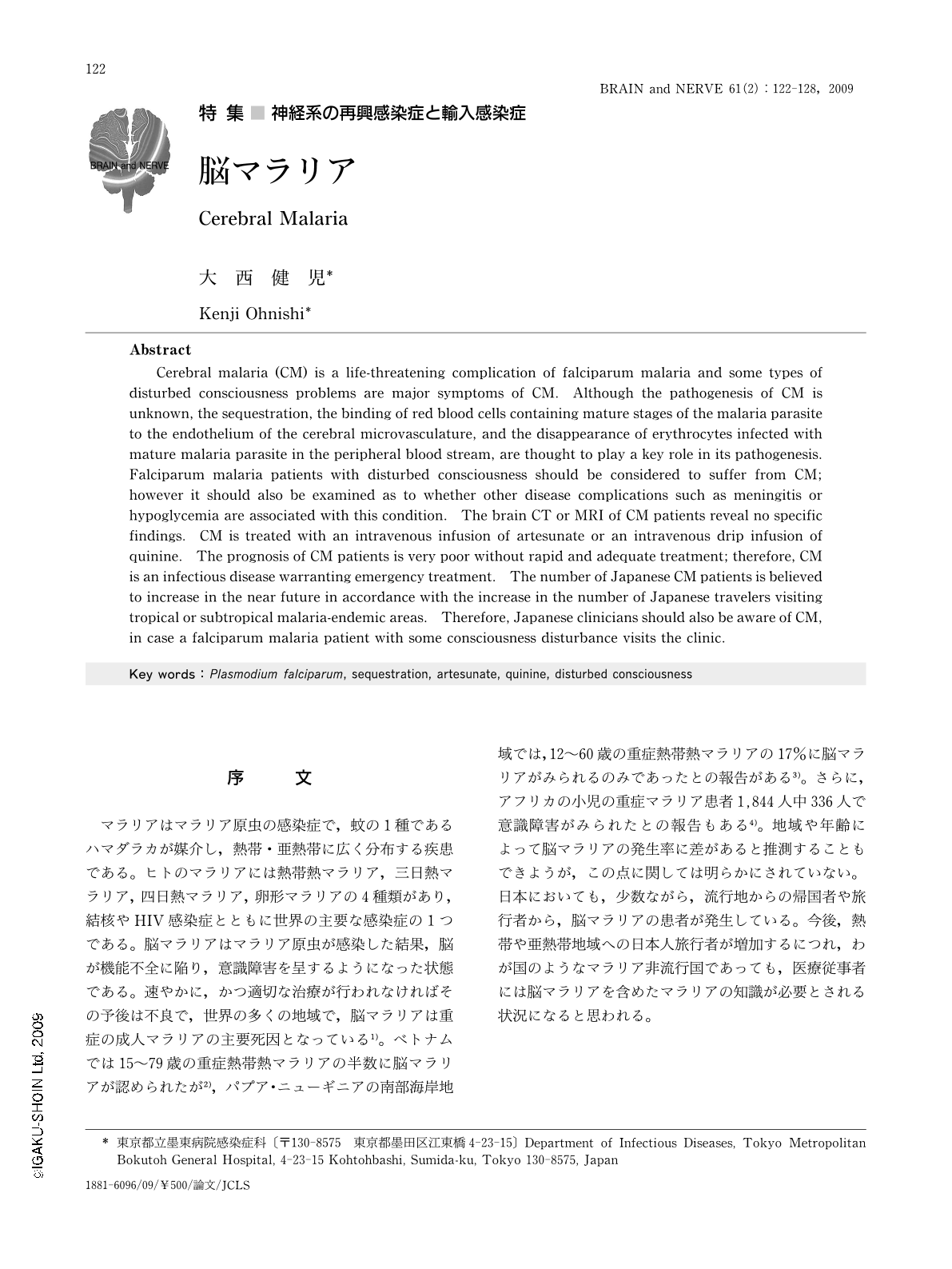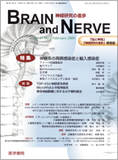Japanese
English
- 有料閲覧
- Abstract 文献概要
- 1ページ目 Look Inside
- 参考文献 Reference
序文
マラリアはマラリア原虫の感染症で,蚊の1種であるハマダラカが媒介し,熱帯・亜熱帯に広く分布する疾患である。ヒトのマラリアには熱帯熱マラリア,三日熱マラリア,四日熱マラリア,卵形マラリアの4種類があり,結核やHIV感染症とともに世界の主要な感染症の1つである。脳マラリアはマラリア原虫が感染した結果,脳が機能不全に陥り,意識障害を呈するようになった状態である。速やかに,かつ適切な治療が行われなければその予後は不良で,世界の多くの地域で,脳マラリアは重症の成人マラリアの主要死因となっている1)。ベトナムでは15~79歳の重症熱帯熱マラリアの半数に脳マラリアが認められたが2),パプア・ニューギニアの南部海岸地域では,12~60歳の重症熱帯熱マラリアの17%に脳マラリアがみられるのみであったとの報告がある3)。さらに,アフリカの小児の重症マラリア患者1,844人中336人で意識障害がみられたとの報告もある4)。地域や年齢によって脳マラリアの発生率に差があると推測することもできようが,この点に関しては明らかにされていない。日本においても,少数ながら,流行地からの帰国者や旅行者から,脳マラリアの患者が発生している。今後,熱帯や亜熱帯地域への日本人旅行者が増加するにつれ,わが国のようなマラリア非流行国であっても,医療従事者には脳マラリアを含めたマラリアの知識が必要とされる状況になると思われる。
Abstract
Cerebral malaria (CM) is a life-threatening complication of falciparum malaria and some types of disturbed consciousness problems are major symptoms of CM. Although the pathogenesis of CM is unknown,the sequestration,the binding of red blood cells containing mature stages of the malaria parasite to the endothelium of the cerebral microvasculature,and the disappearance of erythrocytes infected with mature malaria parasite in the peripheral blood stream,are thought to play a key role in its pathogenesis. Falciparum malaria patients with disturbed consciousness should be considered to suffer from CM; however it should also be examined as to whether other disease complications such as meningitis or hypoglycemia are associated with this condition. The brain CT or MRI of CM patients reveal no specific findings. CM is treated with an intravenous infusion of artesunate or an intravenous drip infusion of quinine. The prognosis of CM patients is very poor without rapid and adequate treatment; therefore,CM is an infectious disease warranting emergency treatment. The number of Japanese CM patients is believed to increase in the near future in accordance with the increase in the number of Japanese travelers visiting tropical or subtropical malaria-endemic areas. Therefore,Japanese clinicians should also be aware of CM,in case a falciparum malaria patient with some consciousness disturbance visits the clinic.

Copyright © 2009, Igaku-Shoin Ltd. All rights reserved.


